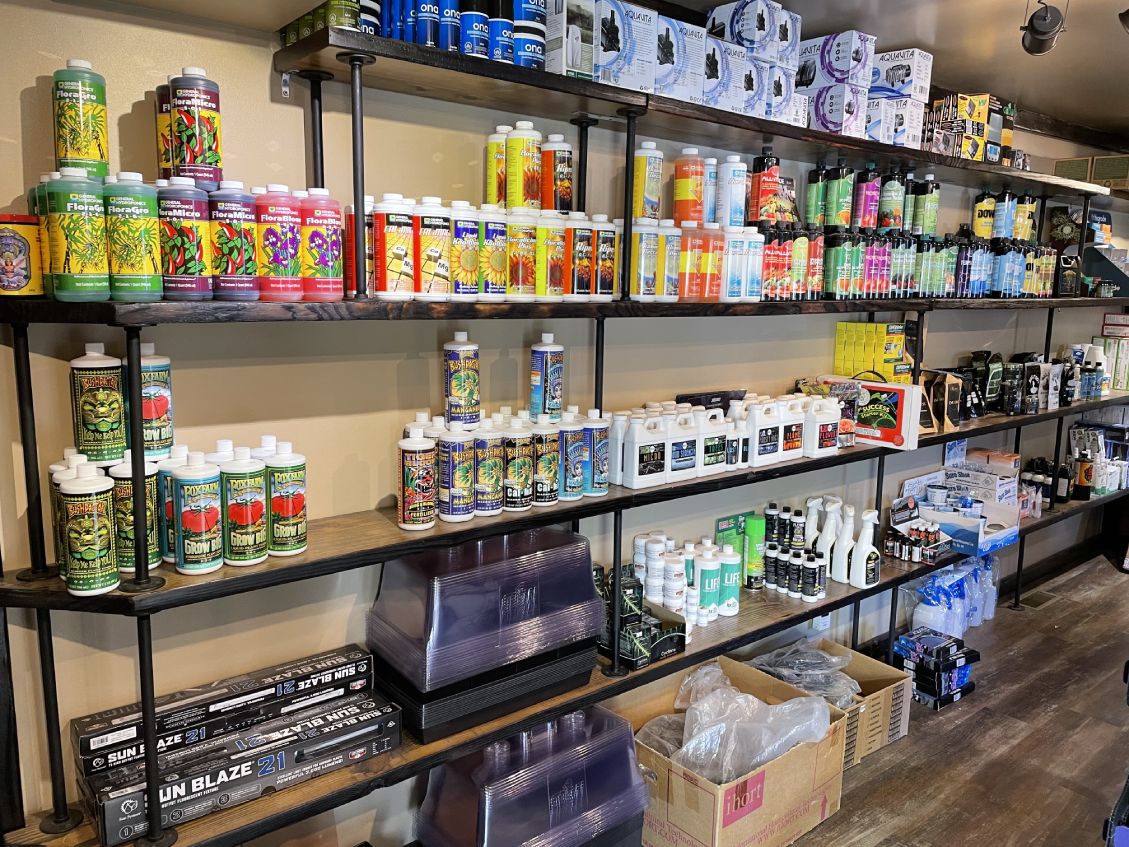Enhance Your Horticulture Skills With Hydroponics: Checking Out Benefits
The technique of growing plants without dirt may seem unusual at first, however its benefits are worth taking into consideration. As we delve right into the globe of hydroponic gardening, we uncover a myriad of advantages that not just boost plant development yet also supply one-of-a-kind opportunities for people looking to boost their horticulture abilities.
Benefits of Hydroponic Horticulture
Hydroponic horticulture supplies countless benefits as a result of its reliable use of sources and specific control over plant development problems. By supplying plants with straight access to nutrients liquified in water, hydroponic systems get rid of the requirement for soil, minimizing water usage by up to 90% contrasted to traditional soil-based cultivation. This efficient nutrient delivery approach likewise enables for faster plant growth rates and higher returns, making hydroponic gardening an eye-catching option for making best use of restricted area and resources.
In addition, the regulated setting of hydroponic systems allows cultivators to maximize factors such as ph, temperature level, and humidity degrees, resulting in much healthier plants with reduced risk of illness and bugs. This accurate control over expanding conditions not just advertises much faster and more constant plant growth however also permits for year-round growing regardless of exterior weather condition conditions.
Faster Plant Development With Hydroponics
Utilizing innovative nutrient delivery systems, hydroponic horticulture facilitates increased plant growth prices compared to standard soil-based cultivation techniques. In hydroponic systems, plants have direct access to necessary nutrients dissolved in water, enabling optimal absorption without the requirement to use up energy creating substantial root systems to browse for nutrients in the dirt. This efficient nutrient distribution device enables plants to reroute their energy towards robust vegetative development and respected fruiting or flowering.
Furthermore, the controlled environment in hydroponic configurations makes certain that plants receive the optimal problems for development consistently. Aspects such as temperature, humidity, light, and pH levels can be carefully kept an eye on and readjusted to develop the optimal growing atmosphere for each and every plant range. By removing the irregularity existing in soil-based horticulture, hydroponic systems provide plants with a secure and favorable setting that maximizes their growth potential.

Water Preservation Benefits
Provided the reliable nutrient delivery system and regulated setting of hydroponic systems, one considerable advantage worth exploring is the conservation of water sources. Hydroponic gardening utilizes up to 90% much less water contrasted to traditional soil-based horticulture approaches. This significant reduction is connected to the closed-loop system site here where water is recirculated and reused, reducing wastage. In standard dirt horticulture, water is lost with dissipation, runoff, and percolation beyond the origin zone, bring about inefficiencies. In hydroponics, the nutrient service is provided straight to the plant origins, making certain optimum water uptake and reducing water loss.
Additionally, hydroponic systems permit specific control over water use, with the capability to change and keep track of nutrient levels based upon plant demands. This targeted strategy protects against overwatering, a typical issue in soil-based gardening, further adding to water conservation efforts. By maximizing water performance and decreasing waste, hydroponic gardening offers itself as a sustainable and eco-friendly choice for individuals aiming to decrease their water consumption in horticulture practices.
Year-Round Plant Farming

By controlling factors such as nutrient, temperature level, and light degrees, hydroponic systems make it possible for plants to grow despite outside weather problems. This regular atmosphere permits continual plant development and harvest, offering a reputable supply of fresh fruit and vegetables also in the dead of winter months.
Additionally, the capacity to grow plants year-round in hydroponic systems opens up chances for cultivators to experiment with a bigger range of plants, expand their growing periods, and increase total efficiency. This flexibility and integrity make year-round plant cultivation in hydroponics a valuable device for both hobbyists and industrial growers aiming to maximize their horticulture efforts.
Enhancing Horticulture Skills With Hydroponics
Creating proficiency in hydroponics can equip garden enthusiasts with a deeper understanding of plant farming methods and enhance their overall horticulture abilities. Hydroponic systems provide a controlled environment where garden enthusiasts can closely keep track of and change variables such as nutrient levels, pH balance, and lighting conditions to maximize plant growth. By mastering these aspects, garden enthusiasts can adjust their abilities and knowledge, resulting in more successful harvests and much healthier plants.
In addition, hydroponic horticulture challenges conventional concepts of soil-based growing, urging gardeners to believe outside package and trying out ingenious growing techniques. This trial and error can cultivate creative thinking and analytical abilities, as garden enthusiasts discover to adjust and repair concerns one-of-a-kind to hydroponic systems. In addition, the performance of hydroponic configurations, such as upright yards or nutrient movie methods, can educate garden enthusiasts how to make the most of space and resources effectively.
Conclusion
To conclude, hydroponic horticulture offers various advantages such as faster plant growth, water preservation, and year-round growing. By exploring the advantages of hydroponics, people can boost their gardening skills and achieve effective plant development. over at this website Think about integrating hydroponic methods right into your gardening methods to optimize effectiveness and performance in your garden.
As we dig right into the world of hydroponic gardening, we discover a huge selection of advantages that not just enhance plant development but also supply special possibilities for people looking to raise their horticulture abilities.Making use of advanced nutrient shipment systems, hydroponic gardening helps with sped up plant development rates compared to conventional soil-based growing approaches. By removing the irregularity existing in soil-based gardening, hydroponic systems give plants with a steady and favorable setting that maximizes their development capacity.
Enhancing the sustainability and efficiency of gardening techniques, year-round plant cultivation in hydroponic systems provides a reliable and regular technique for cultivating a variety of crops no matter of seasonal restrictions. The Indoor Earthworm.In final thought, hydroponic gardening uses countless benefits such as faster plant development, water conservation, and year-round cultivation